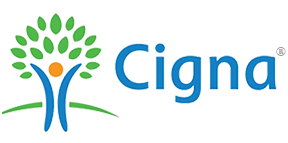Personalized Health Insurance Designed Specifically for Your Needs
In just minutes, receive a tailored health insurance quote perfectly matched to your requirements!






Health Insurance
Health insurance is a crucial financial tool that provides coverage for medical expenses incurred due to illness, injury, or preventive care. It serves as a safeguard against unexpected healthcare costs, ensuring individuals and families can access the care they need without facing financial hardship.
Health insurance typically covers a range of services, including doctor visits, hospitalization, prescription medications, diagnostic tests, and preventive screenings. Depending on the plan, coverage may extend to specialist care, mental health services, maternity care, and more.
There are various types of health insurance plans available, such as employer-sponsored plans, individual and family plans, government-funded plans like Medicare and Medicaid, and supplemental plans.
Life Insurance
Life insurance is a financial product designed to provide a monetary benefit to beneficiaries upon the insured individual’s death. It serves as a safety net for loved ones, offering financial support to cover expenses such as funeral costs, debts, and ongoing living expenses.
There are several types of life insurance, including term life insurance, which provides coverage for a specific period, and whole life insurance, which offers coverage for the insured’s entire life as long as premiums are paid. Other variations include universal life and variable life insurance, which offer flexibility in premiums and investment options.
When purchasing life insurance, individuals typically consider factors such as their age, health status, financial obligations, and the needs of their beneficiaries. Premiums are based on these factors, with younger, healthier individuals generally paying lower premiums.


Medical Savings Plans
Medical savings plans, also known as health savings accounts (HSAs) or flexible spending accounts (FSAs), are financial tools that help individuals and families save money for medical expenses while offering potential tax benefits.
HSAs are available to individuals enrolled in high-deductible health plans (HDHPs). Contributions to HSAs are tax-deductible, and funds can be withdrawn tax-free for qualified medical expenses, including doctor visits, prescription medications, and certain medical procedures. Unlike FSAs, funds in HSAs roll over from year to year, allowing account holders to accumulate savings for future healthcare needs.
FSAs, on the other hand, are employer-sponsored accounts that allow employees to set aside pre-tax dollars to pay for eligible medical expenses. These funds must be used within the plan year or forfeited, although some employers offer a grace period or carryover allowance.
